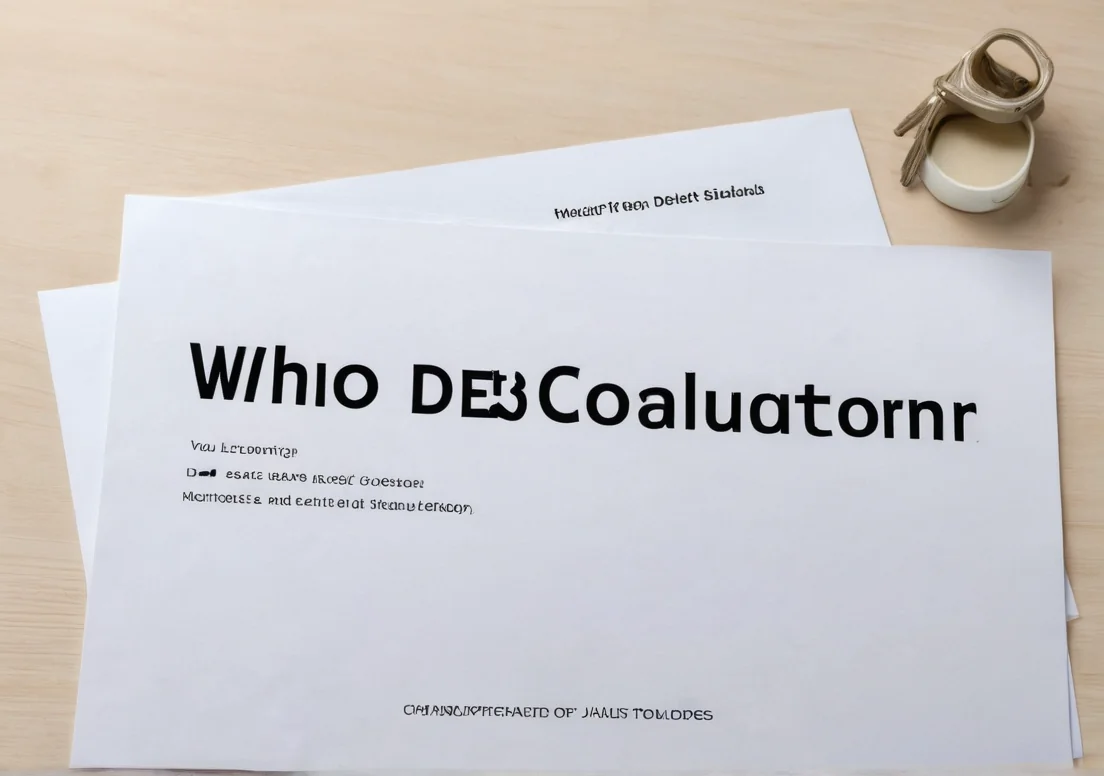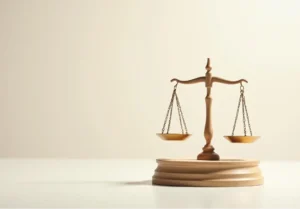
Debt collectors are often seen as the heavyweights of the finance world, but how much do you really know about them? Whether you’ve had encounters or prefer to stay clear of them, their impact on our lives can’t be ignored.
Debt collectors are individuals or agencies hired to recover unpaid debts on behalf of creditors. They play a significant role in the financial ecosystem, and understanding their function is vital for anyone who interacts with credit and debt. There’s a lot more to this topic than just knowing what debt collectors do—let’s uncover the nuances that can affect your financial life.
Key Takeaways:
- Debt collectors are essential players in the financial landscape, mainly categorized into first-party and third-party collectors.
- Under the Fair Debt Collection Practices Act, consumers have rights to protect them from harassment and ensure accurate communication about debts.
- Ignoring debt collectors can lead to serious financial repercussions, including damaged credit scores and potential legal action, making proactive engagement vital.
Disclaimer: The information on this blog is for general educational purposes only and does not constitute personalized financial advice. While we strive for accuracy, FinanceBeacon cannot guarantee the reliability or suitability of the content for your specific financial decisions. Always consult a qualified financial advisor before making any financial choices. Use this information at your own risk.
Who Are Debt Collectors?
Debt collectors play a pivotal role in the financial landscape, but who exactly are they? Essentially, they’re individuals or companies hired to recover owed money from people or businesses that haven’t paid their debts on time. These debts can range from unpaid credit card bills to medical expenses and even delinquent utilities.
There are mainly two types of debt collectors:
First-party collectors are typically part of the original creditor’s organization. They handle overdue accounts for their employers, often initially reaching out to remind customers about an outstanding balance.
Third-party collectors are independent agencies or firms that specialized in recovering debts. They’re brought in when the first party has failed to collect after a certain period. These collectors generally purchase the debt at a discounted rate or work on commissions based on what they recover.
Understanding who these folks are is crucial because having an outstanding debt could mean interacting with them sooner or later. With around 70 million Americans dealing with debt collections as of recent surveys, it’s a situation affecting a significant chunk of the population.
How Do Debt Collectors Operate?
Debt collectors utilize a variety of methods to recover funds. Their approaches can range from friendly reminders to more aggressive tactics. Here’s a closer look at the methods they often employ:
Initial Contacts: Collectors usually start with phone calls or letters outlining the owed amount. They may even contact you via email.
Negotiation: Many collectors are open to negotiating repayment terms. They might propose a payment plan or a settlement for less than the original owed amount, which can be a pragmatic path forward if you’re facing financial strain.
Skip Tracing: If they can’t reach you, some collectors use skip tracing, a process that employs various tools and databases to locate your current address or contact information.
Legal Action: If efforts to collect continue to fail, they might pursue legal avenues, such as filing a lawsuit. This is typically a last resort, but it can lead to garnishments or liens if a court rules in their favor.
Reporting to Credit Bureaus: Collectors often report debts to credit bureaus, which can impact your credit score significantly, making it more challenging to secure loans or other financial products down the road.
Being aware of how these collectors work can empower you to better manage your financial interactions. Take note: You have rights under the Fair Debt Collection Practices Act (FDCPA), which prohibits abusive and unfair practices in debt collection. If you believe you’re dealing with unethical tactics, understanding your rights can help you stay informed and assertive.
What Rights Do Consumers Have?
You’re not alone if you’re feeling overwhelmed by debt collectors. Luckily, the Fair Debt Collection Practices Act (FDCPA) is on your side. It’s designed to protect consumers from abusive or misleading collection practices, ensuring you’re treated fairly.
Here are some key rights you need to know:
Communication Limits : Debt collectors can’t call you at unreasonable hours (like before 8 AM or after 9 PM) unless you agree. Plus, they can’t call you at work if you’ve told them not to.
Truthfulness is Mandatory : They must identify themselves and can’t misrepresent the amount you owe or the consequences of non-payment. That means no threats or false claims.
Validation Requests : If you ask, they’re required to provide written proof of the debt within five days of contacting you. Don’t hesitate to use this right if things feel off.
Protection from Harassment : Say goodbye to abusive tactics. Debt collectors are forbidden from using profane language, making threats, or calling you repeatedly to annoy you.
It’s vital to keep yourself informed about these protections so you can stand firm against any unfair practices.
Why Should You Care About Debt Collectors?
Ignoring debt collectors isn’t an option if you want to maintain a healthy credit score and secure your financial future. When collectors come knocking, they’re not just a nuisance; they can have lasting impacts on your finances.
Consider this:
Credit Report Damage : Unpaid debts can lead to negative marks on your credit report, harming your score for years. A low score can limit future borrowing options and spike interest rates on loans.
Legal Consequences : If a debt collector decides to sue you, it could result in wage garnishment or liens against your property. That’s a big deal and can take a serious toll on your finances.
Loan Denials : Good luck getting approved for a mortgage or car loan if you’ve got unresolved debts hanging over your head. Lenders often examine your credit history, which can lead to disappointment when they see those collections.
To tackle debt collectors efficiently, always document your communications. Keeping a detailed record can help you spot inaccuracies and defend your rights if needed. Plus, don’t hesitate to negotiate; sometimes, collectors are willing to settle for less than what you owe.
Understanding the implications of debt collection isn’t just a matter of personal finance; it’s about taking control of your financial health.
What Are the Most Common Myths About Debt Collectors?
Debt collectors are often misunderstood , and it’s essential to clear up the confusion to avoid undue stress. Here are some of the most prevalent myths:
Collectors Can Harass You : Many think debt collectors can call you at all hours and demand payment in aggressive ways. In reality, the Fair Debt Collection Practices Act (FDCPA) prohibits harassment, like frequent phone calls or using threatening language.
They Can Take Your Stuff Immediately : Some folks believe that if they owe money, collectors can just waltz in and take their belongings. That’s not true. Collectors must go through legal channels and obtain a court judgment before they can take any assets.
Once a Debt Goes to Collection, You’re Out of Options : Many think that a debt being sent to collections means it’s game over. However, you still have the right to dispute the debt and negotiate. Don’t overlook that.
All Collectors Are the Same : Not all debt collectors operate the same way. Some are more professional and ethical than others, and knowing your rights can help you distinguish between the good and the bad.
Understanding these myths helps demystify debt collectors and arm you with the knowledge you need if you’re ever faced with a collection call.
How to Handle Debt Collection Calls
Dealing with debt collectors can feel intimidating, but you can definitely approach these situations with confidence and clarity. Here are some practical tips to help you manage those pesky calls:
Stay Calm : It’s easy to feel overwhelmed, but try to stay composed. Take a deep breath before answering—this can help you think clearly.
Know Your Rights : Familiarize yourself with the laws regarding debt collection. The FDCPA gives you rights like the ability to request a validation of the debt, which stops collection efforts until they provide proof.
What to Say : If you get a call, you might say something like, “I’d like to understand more about this debt. Can you send me a written notice?” This shows you’re engaged but also aware of your rights.
Don’t Ignore It : Avoiding the calls won’t make the debt disappear. It’s better to confront the situation head-on. Ignoring it can lead to more significant issues down the line.
Keep Records : Document every interaction. Note the date, time, and what was discussed. If you ever need to escalate the issue, having a clear record is invaluable.
Unique Tip : Consider a “Cease and Desist” letter. If you feel harassed, you can send a letter to the collector asking them to stop contacting you. This doesn’t eliminate your debt, but it’s a way to manage communications.
Don’t let the anxiety of debt collectors take hold. Knowing what to say and how to respond can turn a stressful situation into one you can manage assertively.
What Happens If You Ignore Debt Collectors?
Ignoring debt collectors isn’t just an inconvenience; it can lead to real consequences. If you decide to brush off their communications, here’s what might unfold:
Increased Pressure : Debt collectors typically won’t back off easily. The more you ignore them, the more relentless their efforts can become, including frequent calls or letters.
Legal Action : If the debt remains unpaid, collectors may choose to file a lawsuit against you. This not only adds legal fees but could also result in a lien against your property or your wages being garnished.
Credit Score Damage : Unpaid debts often lead to a negative mark on your credit report. This can hang around for seven years, making it tough to secure loans or even rent an apartment.
Stress and Anxiety : The longer you avoid dealing with the issue, the more it can weigh on your mental health. Constantly worrying about calls or letters can lead to significant stress.
The best approach? Engage with these collectors. Open communication can often lead to more manageable repayment options or settlements that won’t destroy your financial status. Trust me; it’s far more effective than dodging the problem.
Recent Trends in Debt Collection
The landscape of debt collection is changing rapidly, thanks in part to technology and consumer rights movements. Here are a few emerging trends shaping this industry:
Digital Communication : Many collectors are shifting to text messages and emails instead of traditional phone calls. This approach is not only more efficient but often more convenient for consumers.
Artificial Intelligence : AI is streamlining how collectors analyze data. By leveraging machine learning, collectors can assess which consumers are likely to pay back debts and approach them with tailored strategies.
Consumer Protections : There’s been a notable uptick in legislation aimed at protecting consumers from aggressive collection tactics. The Fair Debt Collection Practices Act (FDCPA) continues to be enforced rigorously, which means collectors must follow specific rules.
Repayment Apps : Some companies are embracing tech to offer simplified mobile payment options. This lets consumers manage their debts more effectively and on their terms.
Focus on Ethical Collections : More companies are integrating fair practices into their collection strategies, emphasizing the importance of respecting consumer privacy and fostering positive relationships.
With these trends, it’s clear that the debt collection industry is evolving. Staying informed about these changes not only helps you navigate collections but also empowers you to protect your rights as a consumer.
As a financial advisor, my goal is to guide you through the world of personal finance with clear, practical advice. With a dedication to clarity and your financial well-being, I’m here to provide insightful guidance and support as you build a foundation of wealth and security.







